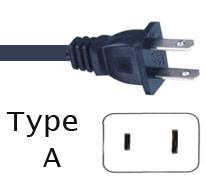China, the world’s most populous country and one of the oldest civilizations, is a vast land of contrasts, where ancient traditions blend seamlessly with modern innovation. From the iconic Great Wall to the futuristic skyline of Shanghai, China offers travelers a diverse array of experiences, encompassing history, culture, cuisine, and natural beauty. Whether you’re exploring ancient imperial palaces, cruising down the Yangtze River, or hiking in the rugged landscapes of Zhangjiajie, China promises an unforgettable adventure.
Ultimate China Travel Guide
Destinations
Best time to go
The best time to visit China depends on the regions you plan to explore and your preferred activities. Generally, spring (March to May) and autumn (September to November) are considered the best seasons, with mild temperatures and less rainfall, making it ideal for outdoor activities and sightseeing. However, certain regions, such as Tibet and Xinjiang, have distinct climates and may be best visited during specific times of the year.
Average Temperature By Month
January:
Beijing: -3°C (27°F)
Shanghai: 7°C (45°F)
Xi’an: 0°C (32°F)
Guilin: 10°C (50°F)
Chengdu: 8°C (46°F)
Lhasa: 7°C (45°F)
February:
Beijing: 0°C (32°F)
Shanghai: 8°C (46°F)
Xi’an: 3°C (37°F)
Guilin: 11°C (52°F)
Chengdu: 9°C (48°F)
Lhasa: 8°C (46°F)
March:
Beijing: 8°C (46°F)
Shanghai: 11°C (52°F)
Xi’an: 10°C (50°F)
Guilin: 15°C (59°F)
Chengdu: 14°C (57°F)
Lhasa: 11°C (52°F)
And so on for the remaining months…
What To Expect
Time Zone:
China operates on China Standard Time (CST), which is 8 hours ahead of Coordinated Universal Time (UTC+8). Keep in mind that China does not observe daylight saving time.
Currency:
The official currency of China is the Renminbi (RMB), often referred to as the Yuan (CNY). While credit cards are widely accepted in major cities and tourist areas, it's advisable to carry cash for smaller transactions and in more remote areas. Currency exchange services are available at banks, hotels, and airports.
Language:
Mandarin Chinese is the official language of China and is spoken by the majority of the population. While English is increasingly spoken, especially in urban areas and tourist destinations, it's still beneficial to learn some basic Mandarin phrases to facilitate communication, particularly in rural areas.
Airport:
China is home to numerous international airports, with Beijing Capital International Airport (PEK) and Shanghai Pudong International Airport (PVG) being the busiest and most well-connected. Other major airports include Guangzhou Baiyun International Airport (CAN), Chengdu Shuangliu International Airport (CTU), and Hong Kong International Airport (HKG).
How To Get Around
High-Speed Rail: China boasts an extensive high-speed rail network, offering fast and efficient transportation between major cities. With comfortable seating and modern amenities, high-speed trains are a popular choice for domestic travel.
Metro/Subway: Major cities like Beijing, Shanghai, and Guangzhou have extensive metro/subway systems that provide convenient and affordable transportation within urban areas.
Taxis: Taxis are readily available in cities and can be hailed on the street or booked through ride-hailing apps like Didi. Always use licensed taxis and insist on using the meter or agree on a fare before starting your journey.
Public Buses: Public buses serve both urban and rural areas, providing a budget-friendly option for getting around. Bus routes and schedules vary by city, so it’s advisable to research in advance or ask locals for assistance.
Domestic Flights: Domestic flights are available for traveling between major cities and remote regions. Airports are well-connected, with numerous airlines offering regular flights to various destinations across China.
Average Temperature By Month:
January:
Beijing: -3°C (27°F)
Shanghai: 7°C (45°F)
Xi’an: 0°C (32°F)
Guilin: 10°C (50°F)
Chengdu: 8°C (46°F)
Lhasa: 7°C (45°F)
February:
Beijing: 0°C (32°F)
Shanghai: 8°C (46°F)
Xi’an: 3°C (37°F)
Guilin: 11°C (52°F)
Chengdu: 9°C (48°F)
Lhasa: 8°C (46°F)
March:
Beijing: 8°C (46°F)
Shanghai: 11°C (52°F)
Xi’an: 10°C (50°F)
Guilin: 15°C (59°F)
Chengdu: 14°C (57°F)
Lhasa: 11°C (52°F)
And so on for the remaining months…
Plugs:
The standard voltage in China is 220 volts AC, with a frequency of 50Hz. The most commonly used plug types are Type A (two flat parallel pins), Type I (three flat pins in a triangular pattern), and Type C (two round pins). It's advisable to bring a universal adapter if your devices have different plug types.
VPN:
Access to certain websites and online services may be restricted in China due to internet censorship. Consider using a reliable virtual private network (VPN) to securely access the internet and bypass any censorship restrictions. However, keep in mind that VPN usage may be subject to regulations, so it's essential to choose a reputable VPN provider and stay informed about any changes in government policies.
Safety:
China is generally a safe destination for travelers, with low crime rates and a strong emphasis on public security. However, it's essential to exercise caution and common sense, particularly in crowded tourist areas where petty theft and scams may occur. Be vigilant with your belongings, avoid carrying large amounts of cash, and be wary of unsolicited offers or invitations from strangers. Additionally, adhere to local laws and regulations, respect cultural customs and traditions, and stay informed about any travel advisories or health alerts that may affect your trip.
Credit Cards and Banks
Credit Cards:
Credit card acceptance in China has been increasing, especially in major cities, tourist areas, hotels, restaurants, and larger shops. Visa and MasterCard are the most commonly accepted cards, although UnionPay is the dominant card network in China. American Express and Discover cards are less commonly accepted but may be used at some establishments.
Mobile Payments:
Mobile payment methods such as Alipay and WeChat Pay are widely used throughout China and are often preferred over credit cards, especially for smaller transactions. These mobile payment apps can be linked to your bank account or credit card and are accepted at a wide range of merchants, including street vendors.
ATMs:
ATMs are widely available in major cities and tourist areas throughout China, allowing you to withdraw Chinese Yuan (CNY) using international credit/debit cards. However, it’s advisable to carry enough cash when traveling to more remote areas, as ATM availability may be limited. Most ATMs accept international cards, but it’s recommended to use ATMs located inside banks or major shopping centers for security.
Currency Exchange:
The official currency of China is the Chinese Yuan (CNY). It’s recommended to exchange your currency to Chinese Yuan upon arrival in China. You can exchange major foreign currencies at banks, currency exchange booths, and some hotels. US dollars and euros are the most widely accepted foreign currencies for exchange.
Banks:
Major banks in China include:
- Industrial and Commercial Bank of China (ICBC): The largest bank in the world by total assets, ICBC offers a wide range of banking services including savings accounts, loans, and foreign exchange.
- Bank of China (BOC): Another prominent bank in China, BOC provides various banking products and services for individuals and businesses.
Traveler’s Checks:
Traveler’s checks are becoming less common worldwide, and their usage is limited in China. It’s recommended to carry cash, use credit/debit cards, or mobile payment methods for transactions. However, some banks may still offer services for cashing traveler’s checks, albeit with a fee.
Tips for Banking in China:
- Notify your bank before traveling to China to inform them of your travel plans and avoid any issues with card usage abroad.
- Keep your PIN and card information secure, and be cautious when using ATMs, especially in secluded areas or at night.
- Familiarize yourself with mobile payment apps such as Alipay and WeChat Pay, as they are widely used for transactions in China.
- Carry small denominations of Chinese Yuan for smaller purchases, as change may be limited.
By understanding the banking system in China, including the prevalence of mobile payment methods, you can ensure a smooth and hassle-free financial experience during your travels in the country.
Locations
China
TRAVEL FACTS
US State Dept Travel Advisory
The US Department of State currently recommends US citizens reconsider travel to Mainland China due to the arbitrary enforcement of local laws, including in relation to exit bans, and the risk of wrongful detentions.
https://travel.state.gov/content/travel/en/traveladvisories/traveladvisories.html
Passport/Visa Requirements
For the latest passport and visa requirements for this country, please consult the U.S. State Department’s “Learn About Your Destination” search tool, available through the link below.
US Embassy/Consulate
[86] (10) 8531-3000; US Embassy in Beijing, 55 An Jia Lou Road, Chaoyang District, Beijing 100600, China; https://china.usembassy-china.org.cn/; BeijingACS@state.gov
LGBTQIA+ Travelers
Telephone Code
86
Local Emergency Phone
Ambulance: 120; Fire: 119; Police: 110, 122 (traffic accident)
Vaccinations
The CDC and WHO recommend the following vaccinations for China: typhoid, hepatitis A, polio, Japanese encephalitis, chikungunya, tickborne encephalitis, rabies, hepatitis B, influenza, COVID-19, pneumonia, chickenpox, shingles, Tdap (tetanus, diphtheria and pertussis) and measles, mumps and rubella (MMR).
Climate
Extremely diverse; tropical in south to subarctic in north
Currency (Code)
Renminbi yuan (RMB)
Electricity/Voltage/Plug Type(s)
220 V / 50 Hz / plug types(s): A, C, I



Major Languages
Standard Chinese or Mandarin, Yue (Cantonese), Wu (Shanghainese), Minbei (Fuzhou), Minnan (Hokkien-Taiwanese), Xiang, Gan, Hakka dialects, minority languages
Major Religions
folk religion, Buddhist, Christian, Muslim, Hindu, Jewish
Time Difference
UTC+8 (13 hours ahead of Washington, DC, during Standard Time); note: despite its size, all of China falls within 1 time zone
Potable Water
Opt for bottled water
International Driving Permit
An IDP is not recognized. Tourists are not allowed to drive in China.
Road Driving Side
Right
Tourist Destinations
Classical Gardens of Suzhou; Potala Palace; Shanghai’s Promenade; Hangzhou’s Historic West Lake; Qing Zhao Mausoleum; Leshan Giant Buddha; Hong Kong Skyline; Zhangjiajie National Forest Park; Great Wall; Terracotta Army; Forbidden City; Summer Palace; Tiananmen Square; Longmen Grottoes
Major Sports
Basketball, table tennis, volleyball
Cultural Practices
In China, spending time with family is expected. Chinese people respect hierarchy and appreciate proper social relations, full of harmony and with minimal conflict. Families in cities tend to live in apartments, often with grandparents. Filial piety and loyalty are valued by most Chinese families.
Tipping Guidelines
Tipping is not officially recognized, though the practice has become increasingly common among tour guides, top-end restaurants, tour bus drivers, and hotel staff.
Souvenirs
Silk items, jade and pearl items, calligraphy sets, antique ceramics, designer fashions, electronics
Traditional Cuisine
Peking Roast Duck — maltose syrup (a natural sweetener produced from fermented grains) glazed-duck roasted until brown; the skin is served dipped in a sugar-garlic sauce and the meat is served with sweet bean sauce, spring onions, pancakes, and cucumber sticks
Please visit the following links to find further information about your desired destination.
World Health Organization (WHO) – To learn what vaccines and health precautions to take while visiting your destination.
US State Dept Travel Information – Overall information about foreign travel for US citizens.
To obtain an international driving permit (IDP). Only two organizations in the US issue IDPs:
American Automobile Association (AAA) and American Automobile Touring Alliance (AATA)
How to get help in an emergency?
Contact the nearest US embassy or consulate, or call one of these numbers:
from the US or Canada – 1-888-407-4747 or from Overseas – +1 202-501-4444
Central Intelligence Agency.
The World Factbook.
/the-world-factbook
(May 8, 2024)



